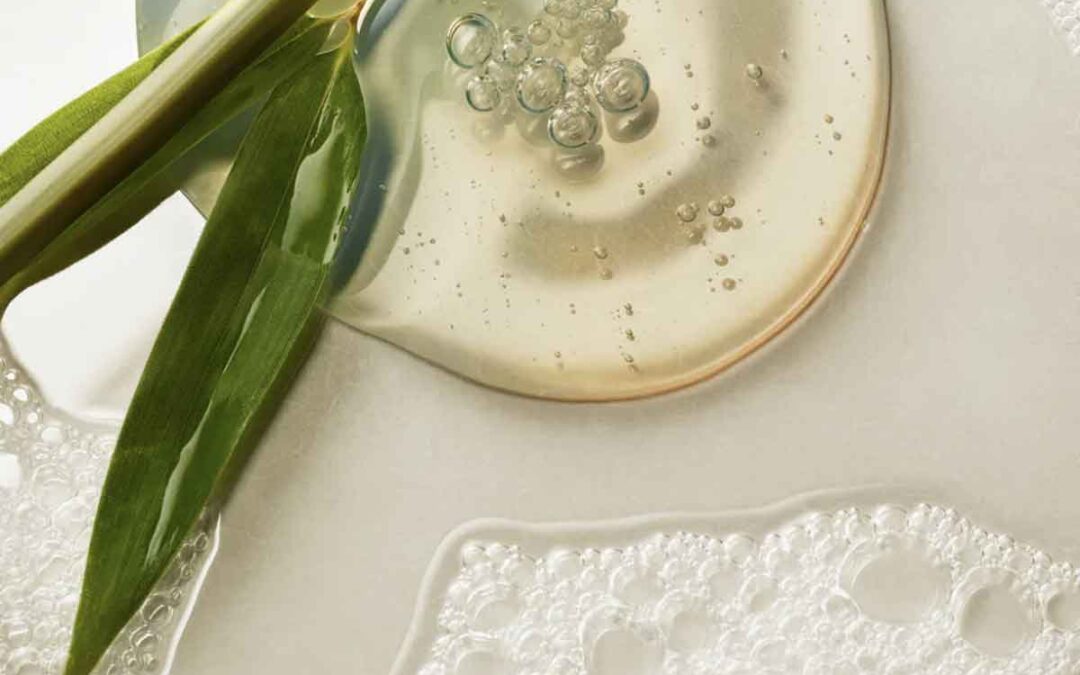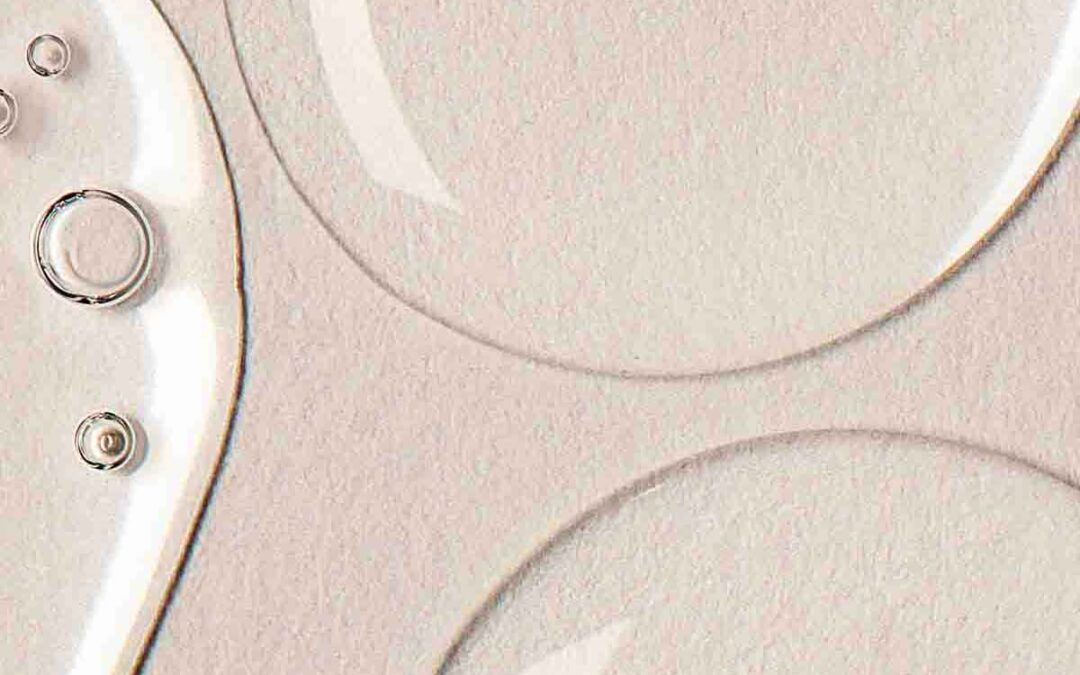Have you heard about greenwashing before? It has sadly become a recurrent practice in several industries around the world. Greenwashing is the practice of using misleading sustainability claims, and it can also be spotted in the skincare industry as well.
As a society, we are moving towards greener products and more sustainable practices, but what if we are being lied to when purchasing our products? Can labels such as “naturally sourced” or “earth friendly” really be trusted? In the following paragraphs, I’ll address this topic, which concerns us all. We’ll review some tips on spotting sustainable skincare and not becoming victims of greenwashing.
Picture this: You go to the store, find a product you need, and see two versions of two different brands. The one you always buy, and another one marked “100% organic” or “bio.” You decide to pay the premium and get the one that is good for the environment. How would you feel if, once you got home, you saw on the news that around 53% of environmental claims made by companies contain “vague, misleading or unfounded” information, while 40% are “completely unsubstantiated.”? I would feel cheated. These, and many other factors, have pushed our society to demand greener, cleaner, and more honest skincare products.
What Is Greenwashing In Skincare?
Greenwashing – a deceptive marketing strategy used to make a company or a product seem more environmentally friendly or sustainable than it really is – is widespread worldwide. Sadly, this common practice in the industry can cancel out the efforts of the companies that are actually working hard to be sustainable.
Just in the European Union, there are over 200 different environmental labels. And more than half of them are just full of it. In the skincare industry, this can be seen as false organic or natural labels, exaggerated eco-friendly claims, and vague product descriptions. Eco-conscious consumers like me often choose these products over the competitors, believing we are making responsible choices. We are even ready to pay a premium to ensure our products are biodegradable, naturally sourced, and eco-friendly.
Greenwashing VS Green Marketing
How can you differentiate between these similar-looking industry mumbo-jumbo? If greenwashing were truthful, it would be green marketing. As simple as that. Green marketing is all the tactics and initiatives that show the real positive changes companies have made to be more sustainable. It’s transparent, honest and refreshing. Greenwashing is not.
Organic / Cruelty-Free / Natural / Clean
These words, usually accompanied by plant-looking designs and colors like green and brown, are overused in packaging nowadays. Since no government regulates these terms, companies can use them freely. This creates a race between them to see who can make their product look greener, which does not mean that it actually is.
Let’s start by saying that these labels are not interchangeable. This means that what is cruelty-free is not necessarily organic, or what is clean does not mean it’s organic.
- Organic: It usually refers to the way the natural ingredients are grown. Organic ingredients are grown without pesticides or artificial fertilizers. Sadly, it does not give us much information about the product in general, and it is common to see in big green font “WITH ORGANIC TEA TREE OIL” when the concentration of this oil is almost non-existent in the product. This is a typical example of greenwashing.
- Cruelty-Free: This means that the product has not been tested on animals, and usually these products have fewer chemicals.
- Natural: It says that the ingredients are naturally available in our environment (basically, they didn’t create a new synthetic compound). This terminology is very ambiguous and easily overused.
- Clean: A Clean product is one without parabens and phthalates, chemical compounds known to be detrimental to human health.
Learning how to decipher labels will really help in the transition to sustainable skincare. If you want to be able to decode ingredient lists like a pro, run the name of the product through the INCI Decoder. Also, there are ways to research and learn more about the steps needed to Incorporate Non-Toxic Skincare into Your Daily Routine.
How To Know If My Product Is Actually Eco-Friendly?
Look for the third-party certifications.
Let’s step out of the beauty industry for a moment. As I mentioned before, greenwashing is present throughout the world in all industries: clothing, appliances, food and beverages, etc. So that you can learn to spot greenwashing for any product, I’d like to share with you the most well-known third-party certifications that ensure a product is actually sustainable:
- Environmental Working Group (EWG) Verified: The EWG Verified label is one given to beauty and cleaning products (skin, personal, and hair care, and cleaning products for your house) that meet essential chemical safety standards. Verified products are free from the EWG’s “chemicals of concern” and meet strict standards for health.
- Fair Trade Certified: This certification is given by Fair Trade USA, a nonprofit organization. Clothing, food, and beverages that carry a Fair Trade certification meet standards for income sustainability, environmental stewardship, and community and individual well-being.
- Non-GMO Project Verified: The Non-GMO Project verified label is given to food, beverages, and personal care products that use only GMO-free ingredients.
- USDA Organic: To be truly organic, a food, beverage, personal care product, or textile has to be certified through the official USDA National Organic Program.
- Green Seal: The Green Seal certification is given only after a scientific analysis of a product’s environmental impact. Products with this seal meet the highest standard for health and eco leadership.
- Look for the ones specific to your country or region as well! Here at Fields of Yarrow we are certified for the EcoCert, GMP and BPOM.
These external labels and certifications are run by organizations that ensure sustainable practices are met and what is written in the package is not just words. Unlike other labels, these ones are actually regulated, and you get what you pay for.



Identifying Truly Sustainable Skincare Brands
To differentiate genuine eco-friendly skincare brands from greenwashing competitors, we must be aware of the fundamental principles that define authenticity. Ethical brands prioritize sustainable practices throughout their supply chain, from responsible ingredient sourcing to eco-friendly packaging and manufacturing. Transparency is a mark of genuinely sustainable brands.
They openly share information about their initiatives and environmental commitments, empowering consumers to make informed decisions. Most of this information you can find on the “Sustainability” tab on your brand’s website. Keep them from fooling you with promises of reducing plastic by 10% over the next 20 years. There needs to be a real commitment there. Use your common sense and be part of the movement of consumers who demand big brands to speed up their sustainability targets.
Remember that using natural products and ingredients has many benefits, as it’s said in this article. It is worth it to make the switch to a more natural skincare routine. Your skin and our planet will thank you.
Fields of Yarrow: A Beacon of Transparency and Sustainability
When Fields of Yarrow was created, protecting our skin and our environment were the founding values. Committed to ethical and green practices, we like to set a high standard in the industry. Our dedication to using organic ingredients with ethical sourcing strategies ensures that every product aligns with our environmentally conscious values while delivering an effective solution to skincare concerns. By choosing Fields of Yarrow, you can trust that you’re supporting a brand that genuinely cares for the environment and is looking to grow using sustainability as our flag. As I mentioned before, always review the sustainability page of any brand to make sure it complements your ideals.
FAQs
Can greenwashing affect a consumer's perception of an entire brand?
Of course. I personally wouldn't purchase anymore any product from a brand that performs greenwashing in their practices. Aside from the ethical standpoint, and the personal standpoint, how can you even trust any other word from a brand when they openly deceive you?
Are there any regulatory bodies specifically dedicated to monitoring and penalizing greenwashing practices?
Are there any independent online platforms or resources that help consumers evaluate the sustainability claims of skincare products?
-
Think Dirty: This app allows users to scan product barcodes and provides information on potential toxins and allergens in cosmetics and personal care products. Website
-
EWG's Skin Deep Database: Developed by the Environmental Working Group (EWG), this database rates and provides information on the safety of various personal care products and their ingredients. Website
-
GoodGuide: This platform rates a wide range of consumer products, including skincare items, based on their environmental, health, and social impacts. Website
-
Cosmetics Info: This platform provides information about the safety and composition of cosmetic ingredients, helping consumers make informed decisions about skincare products. Website
-
Campaign for Safe Cosmetics: This campaign advocates for safer cosmetics and provides resources for consumers to understand product ingredients and safety. Website
-
CertClean: Focusing on safe and clean beauty, CertClean certifies skincare and personal care products free from harmful chemicals. Website
-
Leaping Bunny: Leaping Bunny certifies cosmetic and personal care products as cruelty-free, ensuring they were not tested on animals. Website
-
Made Safe: This organization offers a certification program for products that are made with safe ingredients, free from known harmful chemicals. Website
-
The Detox Market: An online marketplace that curates a selection of clean, non-toxic, and sustainable skincare and beauty products. They also provide transparency about the products they offer. Website
-
Credo Beauty: A retailer that carefully curates products that meet their clean beauty standards, providing transparency about ingredient sourcing and product sustainability. Website
Is it possible for a product to be genuinely sustainable even if it lacks third-party certifications?
Yes, third-party certifications are a reliable indicator, but some smaller brands might be genuinely committed to sustainability without having obtained these (often expensive) certifications yet.
What role can influencers and bloggers play in spreading awareness about greenwashing in the skincare industry?
Influencers and bloggers can use their platforms to educate their followers about greenwashing, encourage critical thinking, and promote genuinely sustainable brands. And actually, we have an open call for bloggers and influencers to work with us. Check out our contact page and shoot us a line if you'd like to collaborate for a cleaner and more ethical skincare.






